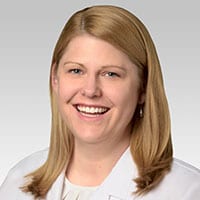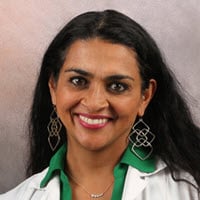This transcript has been edited for clarity.
Kathrin LaFaver, MD: Hello. I'm happy to talk today to Dr Indu Subramanian, clinical professor at UCLA and director of the Parkinson’s Disease Research, Education and Clinical Center (PADRECC) in Los Angeles. I am a neurologist in Saratoga Springs, New York, and we will be talking today about Indu's new paper on childhood trauma and Parkinson's disease. Welcome and thanks for taking the time.
Indu Subramanian, MD: Thank you so much for letting us highlight this important topic.
LaFaver: There are many papers published every month on Parkinson's disease, but this topic stands out because it's not a thing that has been commonly looked at. What gave you the idea to study this?
Neurology Behind Other Specialties
Subramanian: Kathrin, you and I have been looking at things that can inform us about our patients — the person who's standing in front of us when they come in and we're giving them this diagnosis. I think that so much of what we've done [in the past] is a cookie cutter approach to giving everybody the standard treatment. [We've been assuming that] It doesn't matter if they're a man or woman. It doesn't matter if they're a veteran. It doesn't matter if they may be from a minoritized population.
Customization is so key, and we're realizing that we have missed the boat often through the pandemic and in healthcare in general.
We've also been interested in approaches that are outside the box, right? We have this integrative medicine and lifestyle medicine background. I've been going to those meetings and really been struck by the mounting evidence on the importance of things like early adverse childhood events (ACEs), what zip code you live in, what your pollution index is, and how these things can affect people through their life and their health.
I think that it is high time neurologists pay attention to this. There's been mounting evidence throughout many disease states, various types of cancers, and mental health. Cardiology is much more advanced, but we haven't had much data in neurology. In fact, when we went to write this paper, there were just one or two papers that were looking at multiple sclerosis or general neurologic issues, but really nothing in Parkinson's disease.
We know that Parkinson's disease is not only a motor disease that affects mental health, but that it also affects nonmotor issues. Childhood adversity may affect how people progress or how quickly they may get a disease, and we were interested in how it may manifest in a disease like Parkinson's disease.
That was the framework going to meetings. As we wrote this paper and were in various editing stages, there was a beautiful paper that came out by Nadine Burke Harris and team that really was a call to action for neurologists and caring about trauma.
LaFaver: I couldn't agree more. It's really an underrecognized issue. With my own background, being very interested in functional movement disorders, psychosomatic disorders, and so on, it becomes much more evident how common a trauma background is, not only for people we were traditionally asking about.
Why don't you summarize your findings for us?
Adverse Childhood Events
Subramanian: This is a web-based survey, so obviously, these are patient self-reports of their disease. We have a large cohort of people that we've been following over 7 years. I'm looking at modifiable variables and what really impacts Parkinson's disease. Some of our previous papers have looked at diet, exercise, and loneliness. This is the same cohort.
We ended up putting the ACEs questionnaire, which is 10 questions looking at whether you were exposed to certain things in your household below the age of 18. This is a relatively standard questionnaire that's administered one time, and you get a score out of 10. This is something that has been pushed, at least in the state of California, as something that we should be checking more in all people coming in.
We introduced the survey, and we didn't force everyone to take it. Unfortunately, there was 20% or so of our patients who chose not to answer these questions. One has to ask, who are those people that didn't answer the questions? Are they the ones that may have had trauma and these questions were triggering? It was a gap. We didn't add extra questions to explore why people didn't answer those questions.
We have to also put this in context. We have a patient population that's largely quite affluent, who are able to access web-based surveys through their computer, and largely Caucasian; there are not many minoritized populations in our cohort. We want to do better with that. We actually were able to gather a decent number of women. We represent women quite well in our survey. I think that's because of this online approach and some of the things that we're studying.
In our survey, we broke it down into people who had no ACEs, one to three ACEs, or four or more ACEs. This is a standard way to break down ACEs so that we're able to categorize what to do with these patient populations.
What we saw — and it's preliminary evidence — is that people who had higher ACE scores seemed to have more symptom severity when we controlled for things like years since diagnosis, age, and gender. They also seem to have a worse quality of life. There was some indication that there were more nonmotor issues in those populations, as you might expect, such as anxiety, depression, and things that presumably ACEs can affect separately.
There are some confounders, but I think we really want to use this as the first piece of evidence to hopefully pave the way for caring about trauma in Parkinson's disease moving forward.
LaFaver: Thank you so much for that summary. You already mentioned the main methodology you used.
What is the next step for you? How do you see these findings informing our clinical care? Do you have suggestions for all of the neurologists listening in this regard?
PD Not Yet Considered ACE-Related
Subramanian: Dr Burke Harris was the former surgeon general in California. She's a woman of color and a brilliant speaker, and she had worked in inner cities, I think in San Francisco, with pediatric populations, seeing these effects of adversity in that timeframe.
You see this population at risk, and then you're following this cohort, which we knew from the Kaiser cohort, determines earlier morbidity and mortality across a number of disease states. We're seeing things like more heart attacks, more diabetes, and all kinds of things in these populations. This is not new news; we just have not been focusing on this.
In her paper, this call to action, they had talked about some ACE-related conditions that currently do not include Parkinson's disease. There are three ACE-related neurologic conditions that people should be aware of. One is in the headache/pain universe. Another is in the stroke universe, and that's understandable, given cardiovascular risk factors . Then the third is in this dementia risk category. I think Parkinson's disease, as we know, can be associated with dementia. A large percentage of our patients get dementia, but we don't have Parkinson's disease called out in this framework.
What people are talking about is if you have no ACEs or are in this middle category of one to three ACEs and you don't have an ACE-related diagnosis — which Parkinson's disease is not currently — we just give some basic counseling about the importance of lifestyle. I think we would love to see that anyway. They're talking about things like exercise, diet, sleep, social connection, getting out in nature, things like that, so just general counseling on the importance of that.
Then if you're in this higher-risk category, and so with these ACE-related neurologic conditions, including dementia, headache, and stroke, if you had this middle range of one to three ACEs, they're getting additional resources. Some of them may be referred for social work help or mental health support and things like that.
I'd really love to see that happening in Parkinson's disease, because I think we have so many needs in our population. I'm always hoping to advocate for more mental health needs that are scarce and resources in the social support realm because I believe that social connection and social support is a huge buffer for this trauma.
ACEs are just one type of trauma. I take care of veterans in the Veterans Administration (VA). We have some information now coming out about posttraumatic stress disorder, predisposing to certain things in Parkinson's disease, possibly head injury, and things like that. I think we have populations at risk that we can hopefully screen at intake, and I'm really pushing for that.
Maybe it's not the neurologist that does this intake. It might be someone else on the team that can spend some time doing these questionnaires and understand if your patient has a high ACE score. Unless you ask, many patients don't necessarily come forward to talk about this. I really am pushing for trying to screen and trying to advocate for more research in this area so that we can classify Parkinson's disease as an ACE-related condition and thus give more resources from the mental health world, and also the social support world, to our patients.
LaFaver: Thank you. There are many important points, and I think it's a very important thing to recognize that it may not be only trauma in childhood but also throughout life, as you said, and might really influence nonmotor symptoms of Parkinson's disease in particular, including anxiety and pain, which are often difficult to treat.
I think there's much more to do in research, advocacy, and education. We're going to educate patients about this, and also educate other neurologists and providers. I think you mentioned that trauma-informed care is getting its spotlight in primary care and other specialties. I think we have catching up to do in neurology, and I think this is a really important work toward that goal.
Thank you so much for your work and for taking the time to share your thoughts. I hope to talk to you again soon.
Subramanian: Thank you so much, Kathrin.
Follow Medscape on Facebook, Twitter, Instagram, and YouTube
Medscape Neurology © 2023 WebMD, LLC
Any views expressed above are the author's own and do not necessarily reflect the views of WebMD or Medscape.
Cite this: Kathrin LaFaver, Indu Subramanian. Parkinson's Disease: What's Trauma Got to Do With It? - Medscape - Mar 31, 2023.













Comments